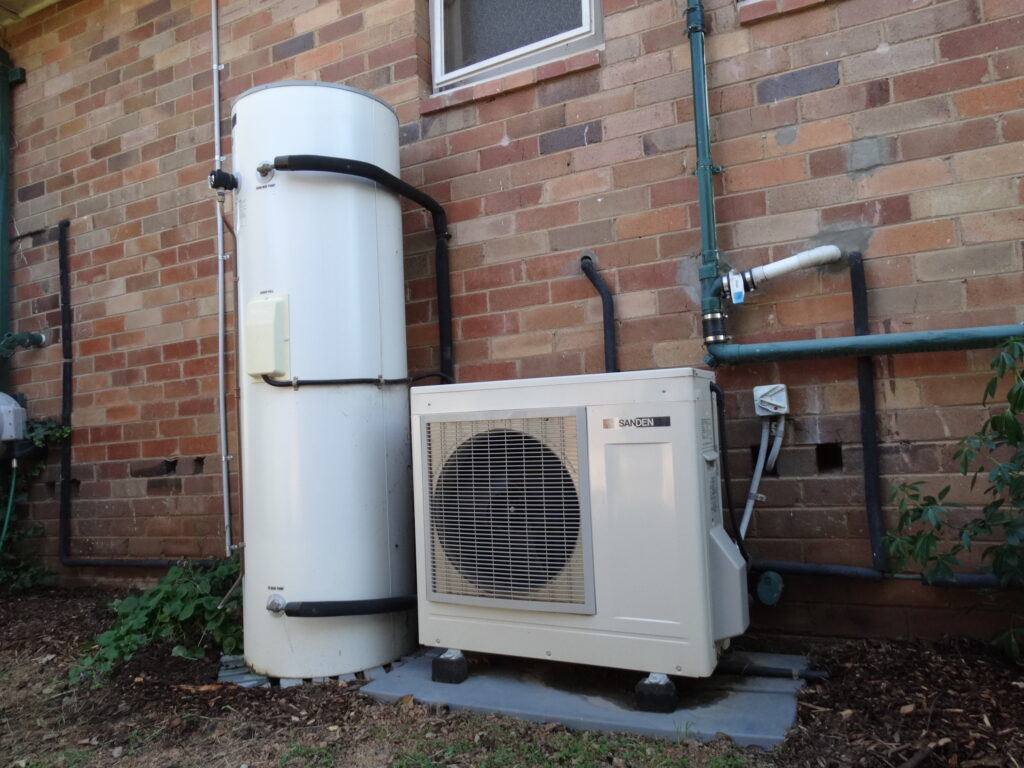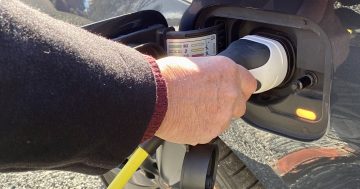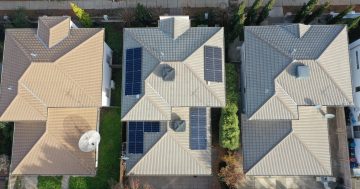
A heat pump pulls in air from the surrounding environment and uses this to warm water – and it uses less energy than gas or hot water alternatives. Photo: Conservation Council ACT Region.
We all love a warm shower to wake us up once we’ve (finally) crawled out of bed, or to wash off at the end of a long day. And your next one could be powered by an older technology that’s recently found new popularity: a heat pump.
As Detlev’s Managing Director Grae Munro explained, a heat pump looks something like an air conditioning unit, and it is placed on or near a water tank. It draws in heat from the air and uses that energy to warm water, working almost like a reverse fridge.
Importantly for Canberrans looking to reduce their carbon footprint, it can also be used to heat water instead of relying solely on other energy sources, such as gas or electricity.
They use between 55 and 80 per cent less energy than standard electric or gas hot water systems, according to the ACT Government’s Climate Choices website.
“What they are is a very highly energy efficient appliance,” Grae said. “Which, in turn, basically results in significant cost savings on energy bills for a household, by using the renewable source.”
Switching over may take less time and effort than you may think, he added.
People can also purchase a booster if they know they will use a lot of hot water, or if they have a large house or a big family.
It can be installed relatively simply in a half-day to a day’s work.
“You’ve got to get the right unit for the right location, but people are surprised that most of the time it’s a simple matter of just pulling out the unit, changing a bit of copper pipe work at the hot water stem,” Grae said.
“We’ve then simply just got to add a power point for it to plug into and that’s one – it’s pretty simple.”
For the installation, Grae has some simple tips.
“In terms of the location, try to keep them out of the sun, away from windows, just so they’re not copping the direct sunlight on the unit,” he said. “The shade is always the best.”
Grae says the uptake of heat pumps has grown in recent years, as people look to make more climate-friendly choices and move away from gas appliances.
“It’s a similar story to when someone is going from a gas cooktop to an electric one,” he said. “They are now considering turning to electric pumps because it’s the same principles for leaving behind gas appliances: moving away from gas, the inefficiency of gas.”
There is also a convenience aspect to switching to a heat pump water heater.
“They’re designed to be durable and long-lasting – they typically have a longer lifespan than traditional hot water systems,” Grae said.
“They can be installed in a variety of locations, both indoors and outdoors, which makes it a versatile option for homeowners and businesses.”
Those looking to switch to renewable energy appliances can find more information, as well as grants and rebates, here.
Recent changes to eligibility for the popular Sustainable Household Scheme mean standalone homes with an unimproved value (UV) below $750,000 in 2022 will be eligible for all products except solar under the scheme, while units must have an UV below $300,000.





















